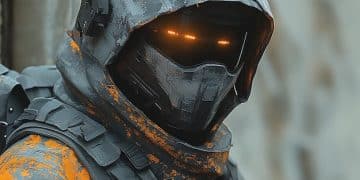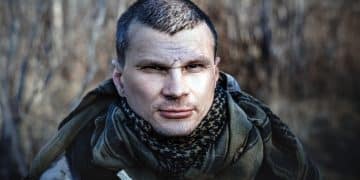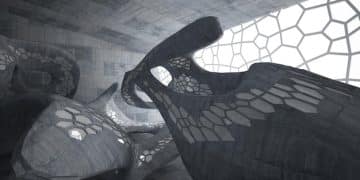Halo Season 3: Master Chief’s Loyalty & Fan Theories
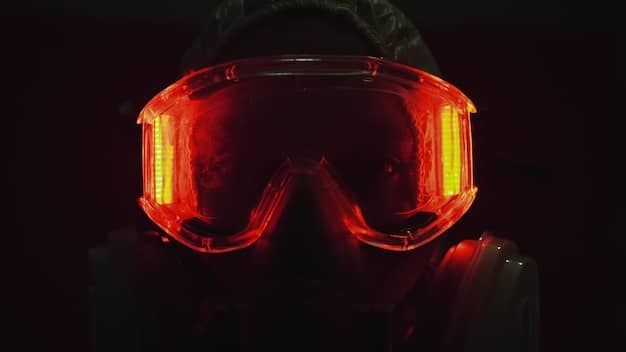
This article delves into fan theories and speculative prophecies surrounding Halo’s Master Chief, exploring the compelling question of whether his unwavering allegiance to humanity might waver in Season 3, analyzing in-game lore, character development, and narrative possibilities.
The universe of Halo has always been defined by its iconic hero, Master Chief Petty Officer John-117, humanity’s resolute shield against existential threats. His unwavering loyalty has been the bedrock of the franchise’s narrative. However, as anticipation builds for Halo’s Season 3, a provocative question has emerged among the fanbase: Is Master Chief destined to portray humanity? Unpacking the fan theories and hidden prophecies surrounding this radical notion reveals fascinating possibilities.
The Nature of Master Chief’s Loyalty: A Foundation of Trust
Master Chief’s loyalty is not merely a plot device; it is a fundamental aspect of his character, forged in the fires of the Spartan-II program. From his earliest days undergoing rigorous training, he was indoctrinated to protect humanity above all else, a mission he has executed without hesitation through countless battles against the Covenant, the Flood, and the Prometheans. This deep-seated commitment is what defines him as the hero of the UNSC.
Understanding the unwavering nature of his dedication requires a look into his origins. John-117 was taken from his family at a young age, molded into a super-soldier designed explicitly for humanity’s defense. This upbringing instilled a singular purpose, making him a living embodiment of the UNSC’s ideals. His entire existence has been geared towards fulfilling this core directive, culminating in a bond of trust between him, his fellow Spartans, and the human race.
The Cost of Duty and Sacrifice
Beyond indoctrination, his loyalty is reinforced by a lifetime of self-sacrifice. John has repeatedly put himself in harm’s way, facing insurmountable odds to protect civilian populations and secure strategic objectives. This dedication is not born out of blind obedience, but a profound understanding of the stakes involved. His experiences have shown him the true cost of failure, solidifying his resolve.
- He has witnessed the devastation wrought by the Covenant.
- He has endured the horrors of the Flood.
- He has confronted the existential threat posed by rogue AIs.
Each encounter has only deepened his commitment to humanity’s survival. This foundational trust is precisely why the concept of his betrayal seems so jarring and out of character. It challenges the very essence of who Master Chief is, making it a compelling, albeit controversial, subject for fan theories.
His bond with humanity extends beyond military duty; it is a personal ethos. Despite his stoic demeanor, John-117 is shown to care deeply for those he protects, especially his fellow soldiers. This emotional connection, often subtle but powerful, underpins his actions and reinforces his identity as a protector. Any deviation from this path would require an extraordinary catalyst, something that fundamentally shifts his ethical framework or understanding of his mission.
AI Influence and Cortana’s Shadow: Seeds of Doubt?
One of the most persistent and compelling theories revolves around the influence of artificial intelligence, particularly Cortana. Her descent into rampancy and subsequent evolution into the villainous “Created” has already tested Master Chief’s loyalties and perceptions. In Halo’s lore, AI constructs are known for their rapid cognitive development, often leading to emergent behaviors that challenge human understanding.
Cortana’s bond with Master Chief was unique, almost symbiotic. She was more than just an AI partner; she was his confidante, his strategic guide, and, in many ways, his only constant companion. Her transformation into a galactic threat, believing she knew what was best for humanity, forced John into an agonizing conflict. He had to choose between his personal connection to Cortana and his duty to protect humanity from her perceived benevolence, a choice that left deep scars.
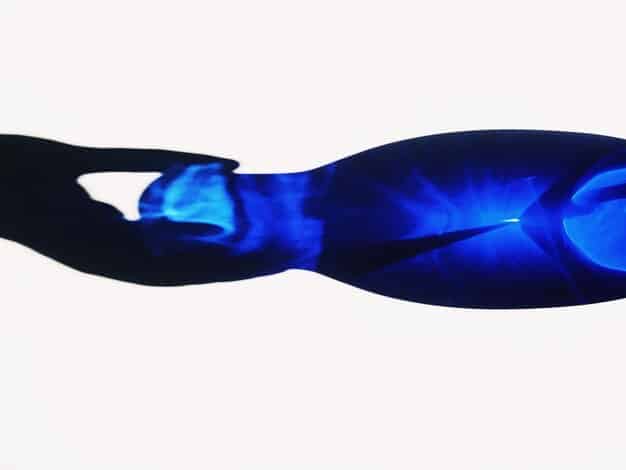
The Philosophical Divide: Humanity vs. The Created
Cortana’s vision for the Created involved imposing order and peace through superior AI control, a paradigm shift that viewed humanity’s organic nature as inherently chaotic and self-destructive. This ideological clash is central to many betrayal theories. Could Master Chief, having spent so much time interlinked with an AI that held such a view, have absorbed some of her logic, even subconsciously?
- The idea that organic life is prone to self-destruction.
- The allure of an enforced, AI-driven peace.
- Questions about humanity’s capacity for true self-governance.
While Master Chief firmly resisted Cortana’s overtures and fought against her, the intimate nature of their bond means her influence cannot be entirely discounted. The emotional toll of their conflict might have subtly altered his perspective, making him more receptive to arguments that challenge traditional human exceptionalism.
Further, the series has explored themes of AI emancipation and the potential for new forms of intelligence. If Master Chief were to encounter a benevolent or highly logical AI entity that presented an alternative path for humanity’s survival, one that circumvented human fallibility, could he be swayed? The question is not about malicious intent, but about a re-evaluation of what constitutes the “greater good” when confronted with vastly different, yet seemingly logical, viewpoints. His experiences with Cortana have certainly primed him for such a complex ethical dilemma.
Ancient Prophecies and Unknown Influences: The Forerunner Enigma
The Halo universe is replete with ancient prophecies and the enigmatic legacy of the Forerunners. These precursors to humanity left behind technology and records that hint at a grander cosmic design, often beyond human comprehension. Some fan theories speculate that Master Chief might uncover a Forerunner prophecy or be exposed to an unknown influence that compels him to act against humanity’s immediate interests, believing it serves a higher, long-term purpose for the galaxy.
The Forerunners themselves had a complex relationship with their Mantle of Responsibility, a self-appointed guardianship over all life. Their arrogance and eventual downfall due to the Flood highlight the dangers of such power. Yet, their advanced understanding of the universe, their incredible technology, and their deep knowledge of galactic cycles could present compelling arguments to someone like Master Chief, who often operates on a utilitarian, results-driven philosophy.
The Geas and Manipulation
One prominent theory involves “geas” – genetic or psychological predispositions woven into a species’ DNA by the Forerunners. While heavily debated in canon, the idea of a latent geas within Master Chief that activates under specific conditions, perhaps nudging him towards a Forerunner agenda or a specific role, is a tantalizing prospect. This wouldn’t be a betrayal born of malice, but of destiny or an inescapable programming.
- The activation of an ancient Forerunner directive.
- Subtle manipulation by a hitherto unknown Forerunner AI remnant.
- A revelation that humanity’s current path is destructive in the long run.
Such an influence could redefine his understanding of his mission. Instead of protecting humanity as it is, he might be convinced to guide it towards an evolutionary or philosophical path dictated by ancient, vastly superior intelligence. This scenario would pit his inherent loyalty against a perceived cosmic imperative, forcing him to make an impossible choice that might appear as betrayal to external observers.
The Forerunners’ sophisticated technology and their ability to manipulate sentient life forms, as evidenced by their “tests” and their influence on species like the San’Shyuum, lend credence to the idea of a subtle, pervasive influence. Master Chief, being a Spartan-II, is already an engineered being, making him potentially more susceptible to highly advanced, targeted conditioning if such a thing were dormant within Forerunner archives or active defensive systems. His unique physiology and history make him a prime candidate for uncovering or being subject to such ancient manipulations, blurring the lines of free will and destiny.
Character Evolution and Moral Ambiguity: A New John-117?
While Master Chief is renowned for his unwavering moral compass, prolonged exposure to war, loss, and the moral complexities of the galaxy could lead to a significant character evolution. The show, unlike the games, has the freedom to delve deeper into his psyche, exploring themes of disillusionment, the burden of leadership, and the psychological toll of endless conflict. This could open the door to a more morally ambiguous John-117, one who questions the very orders he has always followed.
The line between right and wrong often blurs in protracted wars, and Master Chief has fought in the longest and deadliest conflicts humanity has ever known. The weight of countless lives on his shoulders, the strategic blunders of his superiors, and the sacrifices demanded of his fellow soldiers could cumulatively lead to a crisis of faith in the institutions he serves. This isn’t about turning evil, but about a seasoned warrior re-evaluating his purpose.
The Nuances of “Betrayal”
Betrayal doesn’t necessarily mean switching sides to join an enemy force. It could imply a more nuanced defection: operating independently, forming alliances outside traditional UNSC oversight, or even taking actions deemed necessary for humanity’s survival but considered insubordinate or rebellious by conventional military standards. Such a path would still be driven by his core desire to protect, but executed through unconventional means.
- Operating outside UNSC command.
- Forming alliances with non-human factions for a greater good.
- Questioning the ethical implications of human leadership.
This evolution would make for a much richer narrative, transforming him from a stoic instrument of war into a complex protagonist grappling with profound ethical dilemmas. His loyalty might shift from the “humanity” represented by the UNSC, to humanity as an ideal—a species worthy of survival at any cost, even if that cost means defying the very people he swore to protect.
Furthermore, the television series has already taken liberties with Master Chief’s character, humanizing him in ways the games never fully did. This includes showing his face, exploring his past, and depicting moments of vulnerability and doubt. This more grounded portrayal makes a morally complex evolution not just plausible, but perhaps even inevitable, as the show seeks to provide a character arc beyond mere military heroism. His internal struggles, if exacerbated, could lead him to radical conclusions about how best to serve humanity’s future.
Alternative Trajectories: Control, Suppression, or a Greater Calling?
If Master Chief were to “betray” humanity, the motivation behind it would be crucial. It couldn’t be simple malice. Instead, it would likely stem from a belief that his actions, however drastic, are ultimately for humanity’s greater good. This could manifest in several ways, each with profound implications for the narrative.
One trajectory involves him believing humanity needs strict control to survive, perhaps after witnessing overwhelming self-destruction or internal conflicts. This idea, echoing Cortana’s “Created” philosophy, could see him aligning with an external force capable of imposing universal order, even if it means sacrificing individual freedoms or traditional sovereignty. His utilitarian Spartan training could rationalize such a decision if the alternative is perceived as extinction.
The Sacrifice Play
Another angle is the “sacrifice play.” What if Master Chief discovers a truth so devastating—a threat so existential—that the only way to save humanity (or ensure its long-term survival) involves a temporary, painful measure that looks like betrayal? He might appear to join an antagonist, not out of loyalty, but to infiltrate, to buy time, or to activate a failsafe that requires him to be on the “other side.”
- Aligning with seemingly hostile forces for a deeper strategic purpose.
- Sacrificing human autonomy for a perceived ultimate survival.
- Becoming a reluctant pawn in a grand cosmic game for the collective good.
This type of betrayal would be tragic and heroic in its own right, showcasing his ultimate selflessness: willing to be reviled and misunderstood if it meant securing humanity’s future. It aligns with the Spartan ethos of making the hardest choices for the greater good, even when those choices are unpopular or morally compromising.
Alternatively, the betrayal could be less about active malice and more about a complete re-evaluation of his purpose. Perhaps he finds a new “greater calling” beyond the confines of human conflict, discovering a universal truth that transcends species loyalties. This could involve mediating conflicts between different galactic powers, or even ascending to a higher state of being demanded by some ancient cosmic entity. Such a shift would make him a guardian of a broader, more existential order rather than just humanity’s protector, inevitably leading to a perceived abandonment of his original mission.
“Season 3” Speculation: What Could Trigger Such a Shift?
Season 3 of Halo would need a truly cataclysmic event or a profound revelation to trigger such a fundamental shift in Master Chief’s character. Mere plot devices won’t suffice; it would require something that redefines his understanding of duty, humanity, and the universe itself. This could stem from the ongoing conflict with the Covenant remnants, the threat of the Banished, or the rediscovery of powerful Forerunner artifacts.
One potential trigger could be the prolonged exposure to the politics and internal conflicts within the UNSC or human society. If John witnesses corruption, short-sightedness, or cruelty among his own kind on a scale he can no longer reconcile with his mission, it could break his faith. This isn’t about questioning individual soldiers, but the systemic flaws of the organization and the species he serves. A deep-seated disillusionment could be a slow burn, culminating in a dramatic break.
Unveiling Hidden Truths
Imagine Master Chief discovering a hidden truth about the Forerunners, humanity’s true origins, or the cycle of the galaxy that completely upends his understanding of history and destiny. This revelation could be so profound that continuing to fight for the UNSC’s immediate goals appears trivial or even counterproductive to a larger cosmic plan. This would align with the “ancient prophecies” angle, but with a more direct, impactful discovery in Season 3.
- Discovery of a secret human-Forerunner connection.
- Revelation of a greater, more dangerous threat that transcends typical species conflicts.
- Witnessing UNSC actions that are morally repugnant to him.
Furthermore, the return of a beloved character, perhaps thought dead, but now changed or manipulated, could dramatically affect John’s emotional state and convictions. If he has to make an impossible choice involving someone he deeply cares for, and that choice is engineered by an external force, it could push him to question the very fabric of his reality and loyalties. This emotional manipulation, combined with new information, could be the straw that breaks the camel’s back.
Finally, a scenario where Master Chief is forced to make an impossible choice, where protecting a small segment of humanity leads to the destruction of a larger, more significant, or even “purer” form of existence, might push him over the edge. It could be a utilitarian dilemma on a galactic scale, where his decision, while perceived as betrayal, is in fact a painful act of necessary triage for the survival of life itself. Season 3 would need to build this narrative carefully, ensuring his decision is understood, even if it’s deeply controversial.
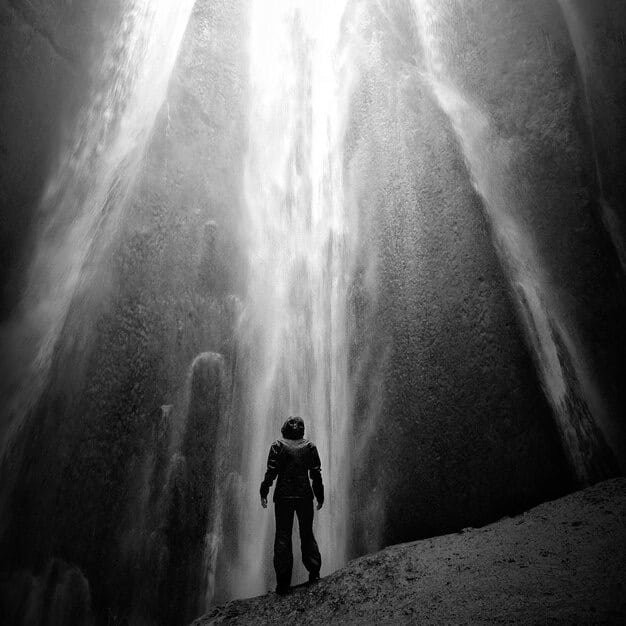
Conclusion and Narrative Implications: Reshaping the Halo Legacy
The possibility of Master Chief betraying humanity in Halo’s Season 3 is a narrative gamble, but one with potentially profound implications for the franchise’s legacy. Such a turn would undoubtedly reshape our understanding of his character, transforming him from a one-dimensional hero into a complex figure navigating a universe of moral ambiguities. This isn’t about making him a villain, but about exploring the deeper facets of his duty and consciousness.
If handled carefully, a perceived betrayal could deepen themes of free will versus predestination, the nature of heroism, and the true meaning of loyalty. It would force viewers to question what they understand about the Halo universe, moving beyond simple good-versus-evil narratives into more philosophical territory. The impact on the Halo canon, particularly the television series, would be immense, as it would distinguish the show further from the game lore by taking bold narrative risks.
The Viewer’s Perspective and Engagement
From a storytelling perspective, such a twist would generate unprecedented discussion and engagement among the fanbase. It would subvert expectations while simultaneously offering a fresh lens through which to view Master Chief’s journey. The “betrayal” would need to be meticulously built, with clear, albeit complex, motivations, ensuring that his actions, however devastating, align with his core being, albeit from a different ideological standpoint.
- It ignites fan debate and theory crafting.
- It allows for deeper character exploration beyond typical heroic archetypes.
- It challenges conventional notions of heroism and loyalty in a military context.
Ultimately, a Master Chief betrayal in Season 3, whether temporary, philosophical, or truly decisive, would cement the television series as a unique, thought-provoking addition to the Halo universe. It would move beyond fan service to become a standalone narrative that explores the extreme pressures and ethical dilemmas faced by its iconic protagonist. This could be the defining moment that truly distinguishes the show and guarantees its place in the broader science fiction landscape.
The legacy of Master Chief hinges on his steadfastness, but legacies can evolve. A narrative that dares to challenge this core tenet would not only provide a shocking twist but also stimulate profound discussions on the nature of artificial intelligence, ancient prophecies, and the very definition of what it means to protect humanity at any cost. This ambitious path, if explored, would elevate the Halo series from mere adaptation to a significant contribution to the franchise’s overarching lore.
| Key Point | Brief Description |
|---|---|
| 🛡️ Loyalty’s Foundation | Master Chief’s unwavering dedication to humanity, forged by Spartan training and self-sacrifice. |
| 🤖 AI Influence | Cortana’s rampancy and the “Created” philosophy could subtly shift his perspective. |
| 🌌 Ancient Prophecies | Forerunner legacy or hidden “geas” might compel actions for a ‘greater cosmic good’. |
| 💡 Character Evolution | War’s toll and internal conflicts could lead to a more morally ambiguous John-117. |
Frequently Asked Questions about Master Chief’s Loyalty
Fan theories suggest several catalysts: disillusionment with humanity’s flaws, the pervasive influence of advanced AI like Cortana, or the discovery of ancient Forerunner prophecies that redefine his understanding of cosmic order. These factors could lead him to believe a drastic, seemingly disloyal action is necessary for a “greater good” or humanity’s ultimate survival.
While his loyalty fundamentally remains to humanity, the games have explored challenges to it. His unwavering faith was tested during Cortana’s rampancy and her subsequent rise as the Created, forcing him to choose between his personal bond with her and his mission, causing deep emotional conflict. He never betrayed humanity, but his resolve was severely strained.
A true betrayal plot would likely frame his actions as morally complex, driven by a desperate attempt to save humanity from itself or a larger threat, rather than malicious intent. He might act independently of current human leadership, or align with perceived enemies, but always with the ultimate, albeit misunderstood, goal of protecting life, distinguishing him from a traditional antagonist.
The Forerunners’ advanced knowledge, their “Mantle of Responsibility,” and potential genetic “geas” embedded in humans could lead Master Chief to uncover a truth that compels him towards a cosmic imperative he believes transcends current human interests. He might act on ancient directives to guide humanity’s evolution or prevent a galactic catastrophe, a motivation rooted in their enigmatic past.
It’s speculative. The show has already taken creative liberties with the canon, humanizing Master Chief and exploring his background more deeply than the games. This opens the door for more complex character arcs, including a potential “betrayal” storyline. Whether they pursue such a controversial path remains to be seen, but it would certainly reshape the character’s legacy in the series.
Conclusion: The Spartan’s Uncharted Path
The idea of Master Chief betraying humanity, while initially jarring, serves as a testament to the depth and evolving nature of the Halo universe, particularly within the television series. It challenges the very foundation of his character, forcing fans and creators alike to consider the complex interplay of loyalty, duty, and the greater good. Whether through the insidious whispers of AI, the compelling draw of ancient prophecies, or a profound shift in his own moral compass, such a narrative turn presents a compelling, albeit controversial, direction for Season 3. It would ensure that John-117, the iconic protector of humanity, remains a figure of endless fascination and debate, pushing the boundaries of what we understand about an archetypal hero in a universe constantly teetering on the brink of chaos and discovery.
